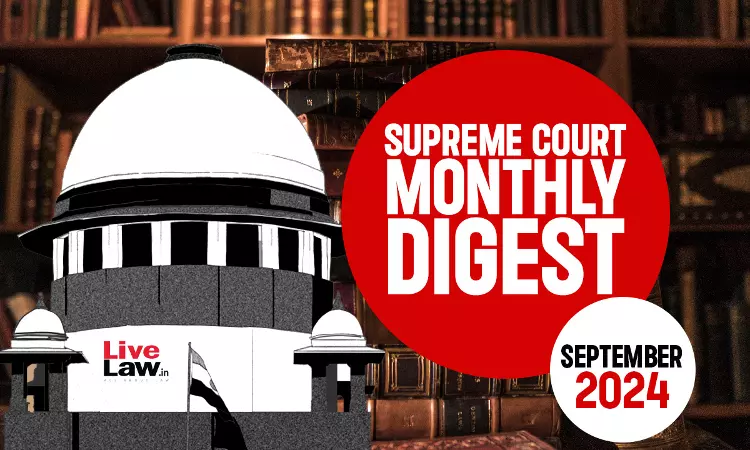Supreme Court Monthly Digest- September 2024 With Statute And Subject Wise Index
LIVELAW NEWS NETWORK
11 Nov 2024 2:05 PM IST

Next Story
11 Nov 2024 2:05 PM IST
AdvocateAdvocates-on-Record can mark the appearances of only those advocates who are authorized to appear and argue the case on a particular day of hearing. Bhagwan Singh v. State of U.P., 2024 LiveLaw (SC) 722Legal professionals are not immune from prosecution for criminal misdeeds. Bhagwan Singh v. State of U.P., 2024 LiveLaw (SC) 722Strict compliance with online appearance marking...
